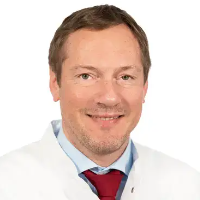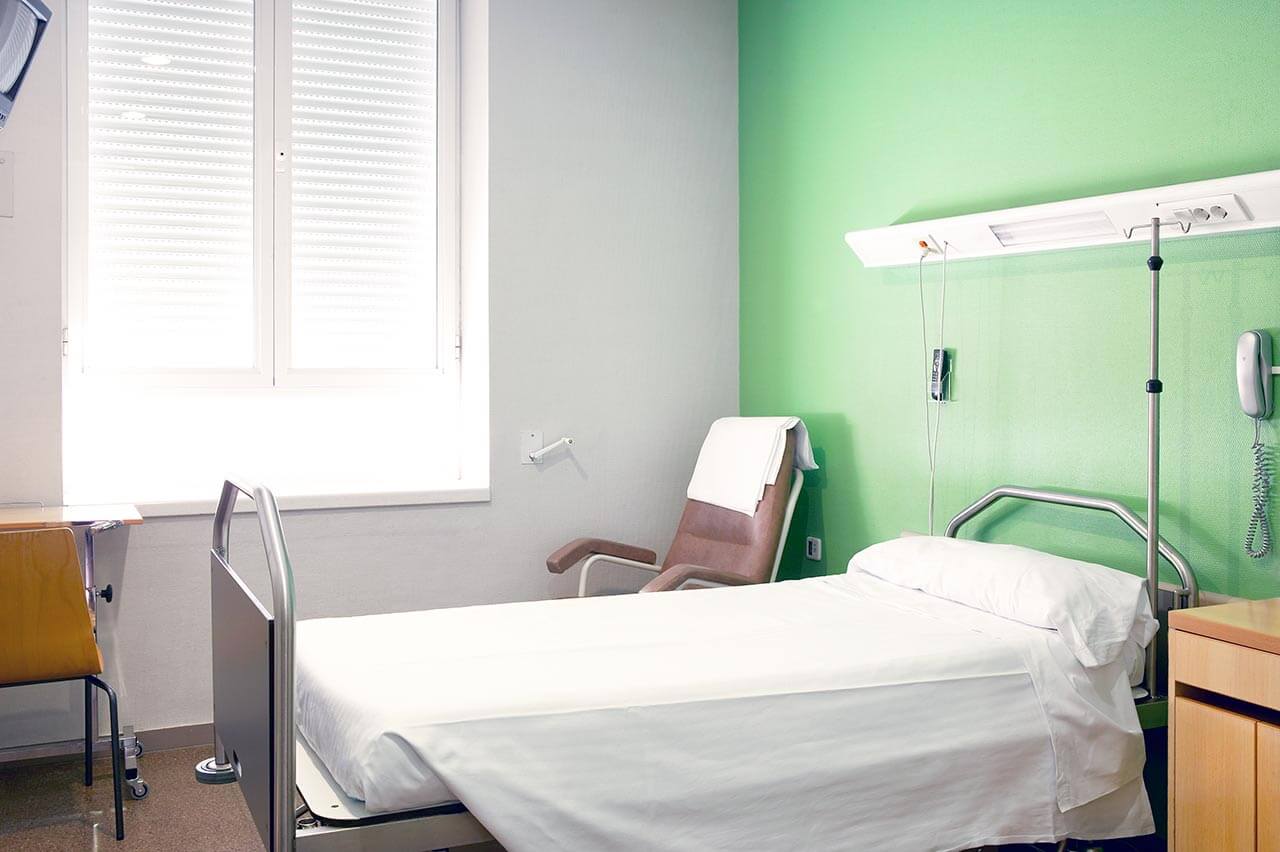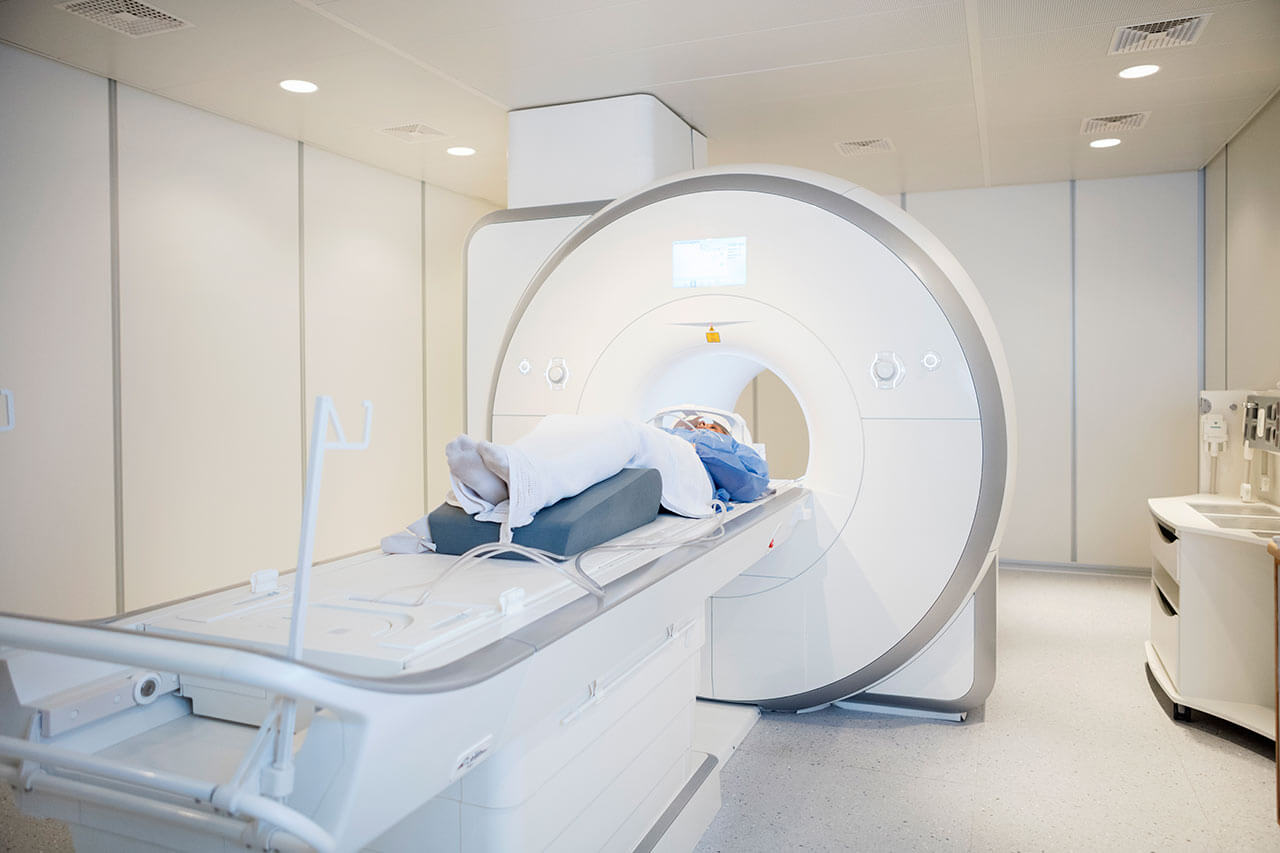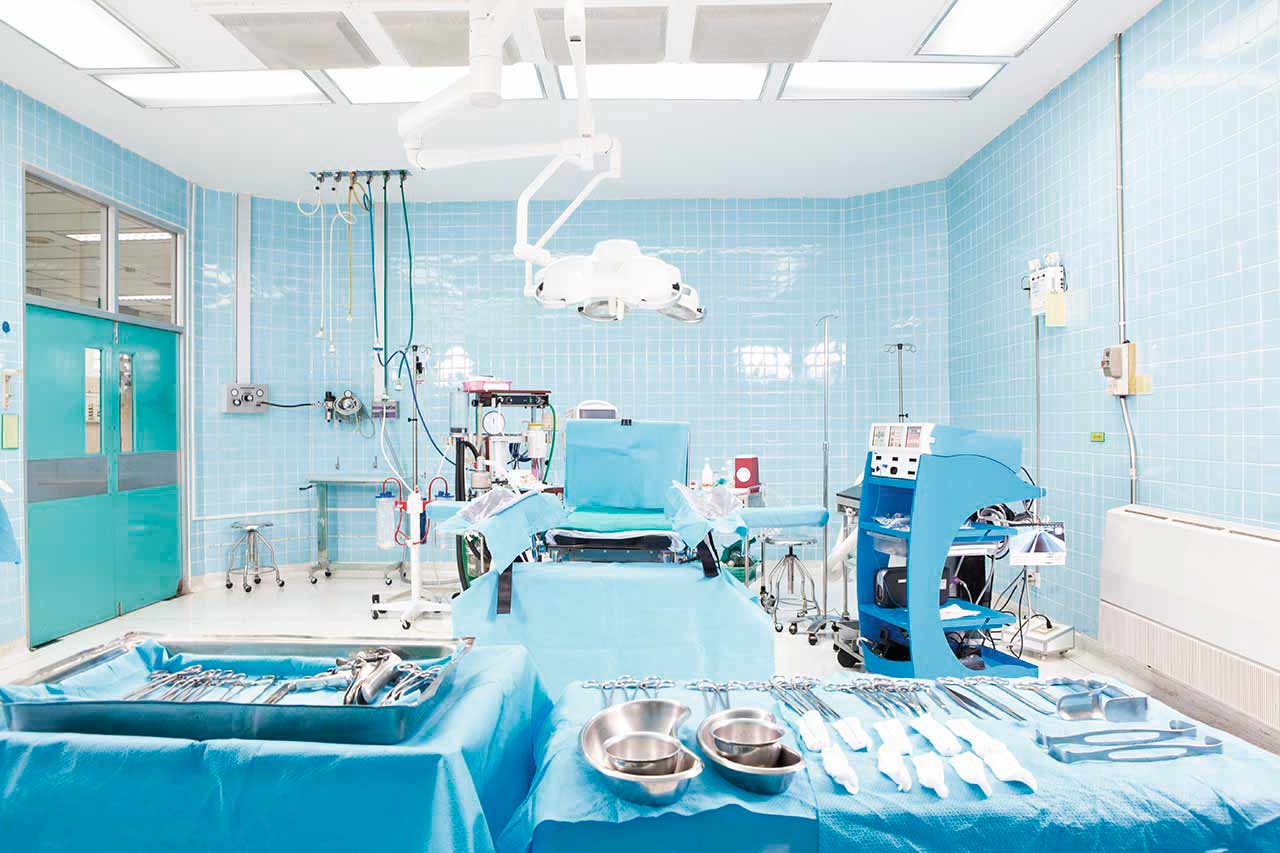
The program includes:
- Initial presentation in the clinic
- clinical history taking
- review of medical records
- physical examination
- laboratory tests:
- complete blood count
- general urine analysis
- biochemical analysis of blood
- determination of the concentration
of antiepileptic drugs in the blood - inflammation indicators (CRP, ESR)
- indicators blood coagulation
- neurological examination
- CT/MRI scan
- neuropsychological tests (on indications):
- ENMG (electroneuromyography)
- EEG (electroencephalography)
- SEPs (somatosensory evoked potentials)
- VEPs (visually evoked potentials)
- BAEP tests (brainstem auditory evoked potential)
- stationary EEG monitoring
- symptomatic treatment
- control examinations
- the cost of essential medicines and materials
- nursing services
- full hospital accommodation
- developing of further guidance
Required documents
- Medical records
- EEG (if available)
- MRI/CT scan (if available)
Service
You may also book:
 BookingHealth Price from:
BookingHealth Price from:
About the department
The Department of Neurology at the University Hospital of Ludwig Maximilian University of Munich offers the full range of modern diagnostics and treatment for diseases of the central and peripheral nervous systems. Of particular interest are such diseases as stroke, epilepsy, movement disorders, dizziness, neuroinfections, headaches, neurodegenerative disorders, and neuromuscular diseases. The department has modern diagnostic rooms with devices for electroencephalography, electromyography, electroneurography, Doppler ultrasonography, evoked potential recording, cerebrospinal fluid analysis, posturography, and other tests. All these diagnostic options allow the department's neurologists to make an accurate diagnosis and provide the most effective treatment. The department's specialists use modern drugs, botulinum toxin injection therapy, physiotherapeutic procedures, and other methods. The department has a friendly atmosphere and all the conditions for the provision of high-quality medical care. According to Newsweek, a reputable American news magazine, the department ranks among the world's best Neurology Centers.The department is headed by Prof. Dr. med. Günter Höglinger.
The department's specialists admit patients with various movement disorders, among which the most common are Parkinson's disease, atypical parkinsonism, tremor, and dystonia. Parkinson's disease is a severe disease of the nervous system in which neurons in the brain are damaged. The pathology has a progressive nature, and today it remains an incurable disease. The task of the department's neurologists is to achieve control over Parkinson's disease and slow down its progression. The neurological pathology has 5 stages, so during the diagnostics, the specialists determine the exact stage, assess the severity of symptoms, and assess a patient's general health condition. In the early stages of the disease, good therapeutic results can be achieved with the help of a well-chosen drug therapy regimen and physiotherapy procedures. In advanced stages and in the presence of severe symptoms, the department's neurologists resort to continuous drug infusions and/or deep brain stimulation.
More than 500 patients with chronic headaches are treated in the department every year. Patients with such a diagnosis are examined and treated in a specialized center, where highly qualified specialists work with them. The therapeutic process begins with a clinical examination and neurological examinations, on the basis of which doctors make a diagnosis. As for the treatment, the most effective analgesics and antispasmodics are selected individually for a patient to relieve pain. Sedatives and anticonvulsants are often additionally prescribed. Physiotherapeutic treatment, for example, massage and electrophoresis, can also have a good effect. Thus, when treating chronic headaches, the department's doctors use a comprehensive approach that allows for excellent therapeutic outcomes.
The department's team of neurologists has rich experience in treating patients with amyotrophic lateral sclerosis (ALS). The pathology is characterized by damage to motor nerve cells in the cerebral cortex and spinal cord. As of today, this disease is incurable, and the goal of doctors is to prolong the patient's life and maintain its high quality. The basis of therapy is the intake of drugs prescribed by a doctor. Whenever required, patients can be treated at home with non-invasive mechanical ventilation using a BiPAP device. The department's doctors also provide patients with palliative care, physiotherapy, and psychological care.
The department specializes in the diagnostics and treatment of many other neurological disorders, such as multiple sclerosis, Alzheimer's disease, myopathies, polyneuropathies, and dizziness. The medical facility also treats benign and malignant tumors of the brain and spinal cord (in cooperation with neurosurgeons).
The department specializes in the diagnostics and treatment of the following neurological disorders:
- Stroke
- Movement disorders
- Parkinson's disease
- Atypical parkinsonism
- Dystonia
- Tremor of various origins
- Multiple sclerosis
- Alzheimer's disease
- Epilepsy
- Spasticity
- Cognitive neurological disorders (for example, memory and speech disorders)
- Chronic headaches
- Dizziness and balance disorders
- Neuroimmunological diseases
- Neuromuscular diseases
- Myopathy, including metabolic one
- Muscular dystrophy
- Mitochondrial diseases
- Spinal muscular atrophy
- Myotonia
- Amyotrophic lateral sclerosis
- Polyneuropathies
- Motor polyneuropathy
- Vasculitic neuropathy
- Benign and malignant tumors of the brain and spinal cord
- Dementia
- Other diseases of the nervous system
The department's range of diagnostic and therapeutic services includes:
- Diagnostics
- Electroencephalography
- Electromyography
- Nerve conduction velocity test
- Doppler ultrasonography
- Registration of somatosensory evoked potentials
- Registration of visual evoked potentials
- Registration of auditory evoked potentials
- Lumbar puncture
- Neuropsychological tests
- Posturography
- Treatment
- Drug therapy with pills and infusions
- Botulinum toxin therapy
- Transcranial magnetic stimulation
- Deep brain stimulation (in collaboration with neurosurgeons)
- Physiotherapy procedures
- Other diagnostic and treatment methods
Curriculum vitae
Higher Education and Postgraduate Training
- 1993 Bachelor's degree in Physics, University of Regensburg.
- 1999 Admission to medical practice, Regensburg and Wuerzburg Universities.
- 1999 Intern, National Hospital for Neurology and Neurosurgery, London, UK.
- 2000 Thesis defense in medicine with honors, Universities of Munich, Bern, and Marburg.
- 2000 - 2004 Postdoctoral Fellowship, National Institute for Health and Medical Research (INSERM), Salpetriere Hospital, Paris, France.
- 2007 Habilitation for Neurology, Philipps University of Marburg.
- 2007 Board certification in Neurology, Hessen State Medical Association.
- 2012 Additional qualification in Intensive Care, Hessen State Medical Association.
- 2014 Additional qualification in Geriatrics, Hessen State Medical Association.
Professional Career
- 1999 - 2001 Physician, Department of Neurology, University Hospital Marburg, Germany.
- 2004 - 2011 Head of the Section of Experimental Neurology, University Hospital Marburg, Germany.
- 2008 - 2009 Senior Physician, Department of Neurology, University Hospital Marburg, Germany.
- 2009 - 2011 Head of the Department of Neurology, University Hospital Marburg, Germany.
- 2010 - 2011 Head of the Stroke Unit in the Department of Neurology, University Hospital Marburg, Germany.
- 2011 Deputy Head of the Department of Neurology, University Hospital Marburg, Germany.
- 2011 - 2019 W3 Professorship for Translational Neurodegeneration, German Center for Neurodegenerative Diseases (DZNE), Munich; Senior Medical Consultant for Neurology, Department of Neurology, University Hospital Rechts der Isar Munich.
- 2017 - 2019 Clinical Research Coordinator and Head of the Department of Clinical Research, German Center for Neurodegenerative Diseases (DZNE), Munich.
Memberships in Professional Societies
- Since 2010 Member of the Scientific Advisory Board of the CurePSP Foundation, New York, NY, USA.
- 2007 - 2011 Co-Founder of the CurePSP Genetic Consortium.
- 2012 Chairman of the PSP International Research Consortium, International Parkinson and Movement Disorder Society (MDS).
- Since 2015 Advisory Board Member of the Prof. Klaus Tiemann Foundation, Berlin, Germany.
- 2017 - 2023 President of the German Parkinson Society (DPG).
- Since 2020 Chairman of the Scientific Advisory Board of the German Parkinson Foundation, Berlin, Germany.
- Since 2021 Member of the Steering Committee for Clinical Research, Hannover Medical School.
- Since 2021 Commission Member for Thesis Assessment "Systemic Neuroscience", Hannover.
- Since 2021 Member of the Board of Directors of the International Neuroscience Institute, Hannover.
Prizes, Awards, and Honors
- 1994 - 1999 University Scholarship, Hanns Seidel Foundation.
- 2001 - 2002 Scholarship, German Research Foundation (DFG).
- 2003 Scholarship, German Parkinson Foundation.
- 2004 Award of Excellence in Neuroscience.
- 2005 Prize, German Parkinson Foundation.
- 2005 Prize, German Parkinson Association.
- 2007 Award of Excellence in Fundamental Science, Movement Disorder Society.
- 2009 First Prize "Innovative Therapeutic Strategies for Neurodegenerative Diseases", Walter and Louise Freundlich Foundation.
- 2011 - 2016 (W3) Professorship, German Research Foundation (DFG).
- Dingebauer Research Award for Atypical Parkinsonism, German Society of Neurology (DGN).
- 2020 Cure PSP Award of Excellence, New York, NY, USA.
Photo of the doctor: (c) LMU Klinikum
About hospital
According to the Focus magazine, the University Hospital of Ludwig Maximilian University of Munich is regularly ranked among the best medical institutions in Germany!
The hospital is the largest multidisciplinary medical facility, as well as a leading research and training center in Germany and Europe. The hospital is proud of its bicentenary history and tirelessly confirms its primacy at the national and international levels. The outstanding quality of medical care is complemented by highly productive research activities, thanks to which many effective diagnostic and therapeutic methods, saving people’s lives, have been presented in medical practice.
The medical facility includes two main buildings, Grosshadern and Innenstadt. The hospital has 29 specialized departments, 53 interdisciplinary centers, 11 institutes, and many sections. More than 500,000 patients are treated here every year, which indicates the hospital's excellent reputation. A large and highly professional medical team, consisting of 1,800 doctors and 3,300 nursing staff, works for the benefit of patients. The hospital has 2,000 beds to accommodate patients.
The hospital's infrastructure deserves special attention: advanced diagnostic equipment that allows doctors to detect the slightest pathological changes in the human body, the latest operating rooms with highly efficient monitoring systems, robot-assisted surgical systems that facilitate sparing operations, and proper postoperative care.
Excellent technical resources and highly professional medical staff are undoubtedly the hospital's pride, but the medical facility also pays attention to the patient's comfort and to a humane attitude toward their life situation. When providing the necessary medical care, doctors and nursing staff always show a friendly attitude, inform patients in detail about the upcoming diagnostic and therapeutic procedures, gladly answer all questions of interest to patients, and provide moral support during the therapeutic process.
The hospital has many prestigious quality certificates, including a DIN EN ISO 9001 certificate, an IQM certificate, an endoCert certificate, certificates from the German Cancer Society (DKG) for treating various types of cancer, the German Cardiac Society (DGK), the German Society for Orthopedics and Trauma Surgery (DGOU), etc. Thus, patients can count on the best possible treatment outcome due to the use of the most effective and, at the same time, sparing therapeutic techniques.
Photo: (с) depositphotos
Accommodation in hospital
Patients rooms
The patients of the University Hospital of Ludwig Maximilian University of Munich live in comfortable, spacious, single and double patient rooms with a modern design. Each room is equipped with an ensuite bathroom with a shower and toilet. The furnishing of a standard patient room includes a comfortable bed, the position of which can be adjusted using the remote control, a locker for storing personal belongings, a TV, and a telephone. Also, if desired, you can connect to the Internet. In addition, patients can opt for enhanced-comfort rooms, with a safe, a fridge, and upholstered furniture.
The hospital has an excellent infrastructure. The medical facility’s area houses a bank, ATMs, a hairdresser, shops with a wide range of food, drinks, newspapers, magazines, and personal hygiene items, play areas for children, and a beautiful garden for walking, etc.
Meals and Menus
The patient and his accompanying person are offered a daily choice of three menus, including a vegetarian one. If you are on a specific diet for any reason, you will be offered an individual menu. Please inform the medical staff about your dietary preferences prior to the treatment.
Further details
Standard rooms include:
Religion
Religious services are available upon request.
Accompanying person
Your accompanying person may stay with you in your room or at a hotel of your choice during the fixed program.
Hotel
You may stay at a hotel of your choice during an outpatient program. Our managers will help you to choose the best option.
The hospital offers a full range of laboratory tests (general, hormonal, tests for infections, antibodies, tumor markers, etc.), genetic tests, various modifications of ultrasound scans, CT scans, MRI and PET/CT, angiography, myelography, biopsies, and other examinations. Treatment with medications, endoscopic and robotic operations, and stereotaxic interventions are carried out here, modern types of radiation therapy are also used. The hospital offers patients all the necessary therapeutic techniques.
- Allogeneic bone marrow transplantation
- Microsurgical transplantation of head and neck tissues
- Microsurgical resection of brain tumors with intraoperative fluorescence
- Minimally invasive treatment of spine pathologies
- Joint replacement with postoperative rehabilitation (fast track program)
Patients with benign and malignant neoplasms of various localizations, pathologies of arteries and veins, herniated discs, osteoporosis, congenital and acquired pathologies of the musculoskeletal system, benign and malignant pathologies of the mammary gland, and other pathologies.
Which specialties of the University Hospital of Ludwig Maximilian University of Munich are the best?
- Interventional and diagnostic neuroradiology
- Vascular surgery
- Cardiac surgery
- Mammalogy
- Gastroenterology and hepatology
Over 1,700 highly qualified doctors work at the hospital.





